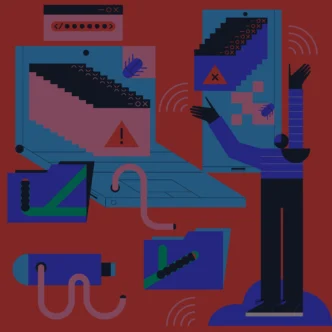Splunk certifications have become a crucial asset for IT and security professionals aiming to advance their skills in security information and event management (SIEM), data analytics, and IT operations. These certifications validate expertise in utilizing Splunk’s powerful data processing capabilities to detect threats, analyze logs, and optimize system performance.
This guide explores the different Splunk certifications, their importance in cybersecurity, and how professionals can use them to enhance their career prospects.
Understanding Splunk Certifications
Splunk certifications assess an individual’s ability to leverage Splunk technology for data collection, analysis, and security monitoring. These certifications cater to various roles, from IT administrators to cybersecurity specialists.
Core Splunk Certifications
- Splunk Core Certified User – Entry-level certification covering fundamental Splunk navigation and search functions.
- Splunk Core Certified Power User – Expands knowledge on data visualization, dashboard creation, and search techniques.
- Splunk Core Certified Advanced Power User – Covers advanced search commands, data models, and workflow automation.
Security-Focused Splunk Certifications
- Splunk Enterprise Security Certified Admin – Focuses on configuring and managing Splunk Enterprise Security (ES) to enhance security visibility and threat detection.
- Splunk Enterprise Security Certified Analyst – Equips professionals with the skills to detect, investigate, and respond to cyber threats.
- Splunk Certified Cybersecurity Defense Analyst (SCDA) – Designed for security professionals engaging in proactive threat hunting and cybersecurity analytics.
Other Relevant Certifications
- Splunk IT Service Intelligence (ITSI) Certified Admin – Ideal for IT professionals monitoring system health and operational efficiency.
- Splunk Cloud Certified Admin – Focuses on managing and optimizing Splunk Cloud deployments.
The Role of Splunk in Cybersecurity
Splunk serves as a comprehensive tool for security teams, providing real-time visibility into system activity, anomaly detection, and compliance monitoring. Its ability to process large-scale security logs enables organizations to mitigate threats and enforce cybersecurity policies effectively.
Challenges in Cybersecurity Addressed by Splunk
- Log Management Complexity – Organizations deal with massive amounts of security logs; Splunk simplifies the process through indexing and correlation.
- Threat Detection – Splunk’s real-time analytics help security teams identify malicious activity before it escalates.
- Incident Response – With automated alerts and forensic analysis, Splunk aids teams in swift and effective incident handling.
Best Practices for Utilizing Splunk Certifications
- Develop Proficiency in Splunk Query Language (SPL) – Mastering SPL enhances data extraction and manipulation skills.
- Apply Knowledge in Real-World Scenarios – Hands-on experience with Splunk environments solidifies learning.
- Stay Updated with Industry Trends – Continuous learning about cybersecurity threats and Splunk advancements ensures professional relevance.
- Leverage Certification for Career Growth – Splunk-certified professionals are in demand across industries such as finance, healthcare, and government sectors.
Career Opportunities with Splunk Certifications
Splunk-certified professionals can explore various cybersecurity and IT roles, including:
- Security Analyst – Detecting and mitigating security threats using Splunk’s SIEM capabilities.
- SOC Analyst – Managing Security Operations Centers (SOC) and monitoring network security events.
- Threat Intelligence Specialist – Analyzing cyber threats and devising strategic security measures.
- Incident Response Analyst – Investigating and responding to cybersecurity incidents.
- Splunk Engineer – Configuring, managing, and optimizing Splunk environments.
Conclusion
Splunk certifications are a valuable asset for professionals looking to advance their expertise in cybersecurity and IT operations. These credentials not only validate technical skills but also open doors to career growth in data security and analytics.














